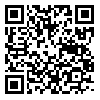Volume 14, Issue 1 (Winter 2026)
PCP 2026, 14(1): 47-56 |
Back to browse issues page
Download citation:
BibTeX | RIS | EndNote | Medlars | ProCite | Reference Manager | RefWorks
Send citation to:



BibTeX | RIS | EndNote | Medlars | ProCite | Reference Manager | RefWorks
Send citation to:
Loveimi K, Bavi S, Fard R J. AI-assisted Intervention and ACT-based Intervention: Boosting Self-efficacy and Self-regulation in Bilingual Students. PCP 2026; 14 (1) :47-56
URL: http://jpcp.uswr.ac.ir/article-1-1033-en.html
URL: http://jpcp.uswr.ac.ir/article-1-1033-en.html
1- Department of Psychology, Ahv.C., Islamic Azad University, Ahvaz, Iran.
2- Department of Psychology, Ahv.C., Islamic Azad University, Ahvaz, Iran. ,sassanbavi@gmail.com
2- Department of Psychology, Ahv.C., Islamic Azad University, Ahvaz, Iran. ,
Abstract: (755 Views)
Objective: Bilingual students frequently encounter unique challenges that can hinder their academic self-efficacy and the development of effective self-regulation strategies. This study aimed to compare the effectiveness of artificial intelligence (AI) assistant and acceptance and commitment therapy (ACT) in enhancing academic self-efficacy and self-regulation among bilingual students.
Methods: Conducted in 2023-2024, this experimental study employed a pre-test-post-test and one-month follow-up design with a control group. A total of 105 Persian-Arabic seventh-grade bilingual male students from Ahvaz City, Iran, were multi-stage cluster sampled and randomized into two 35-member experimental groups (AI assistant, ACT) and one control group. Over 8 weeks, experimental groups received either “Monica” AI or structured ACT sessions, while controls received conventional education. Academic self-efficacy and self-regulation data were collected. Repeated measures analysis of variance with Bonferroni corrections analyzed inter-group differences.
Results: The study’s findings unequivocally demonstrated that both the AI assistant and ACT interventions significantly improved students’ academic self-efficacy and self-regulation when compared to the control group (P<0.001). Furthermore, the AI assistant exhibited a notably more pronounced positive impact on both measured variables than ACT, which itself proved more effective than traditional teaching methods (P<0.001).
Conclusion: These outcomes highlight the considerable potential of integrating technologically advanced and psychologically supported interventions to back the academic development of bilingual students. Conclusively, while both AI and ACT provide advantageous pathways for cultivating essential academic skills, AI-powered tools appear to offer a distinctly superior and more scalable approach for this specific demographic.
Methods: Conducted in 2023-2024, this experimental study employed a pre-test-post-test and one-month follow-up design with a control group. A total of 105 Persian-Arabic seventh-grade bilingual male students from Ahvaz City, Iran, were multi-stage cluster sampled and randomized into two 35-member experimental groups (AI assistant, ACT) and one control group. Over 8 weeks, experimental groups received either “Monica” AI or structured ACT sessions, while controls received conventional education. Academic self-efficacy and self-regulation data were collected. Repeated measures analysis of variance with Bonferroni corrections analyzed inter-group differences.
Results: The study’s findings unequivocally demonstrated that both the AI assistant and ACT interventions significantly improved students’ academic self-efficacy and self-regulation when compared to the control group (P<0.001). Furthermore, the AI assistant exhibited a notably more pronounced positive impact on both measured variables than ACT, which itself proved more effective than traditional teaching methods (P<0.001).
Conclusion: These outcomes highlight the considerable potential of integrating technologically advanced and psychologically supported interventions to back the academic development of bilingual students. Conclusively, while both AI and ACT provide advantageous pathways for cultivating essential academic skills, AI-powered tools appear to offer a distinctly superior and more scalable approach for this specific demographic.
Keywords: Acceptance and commitment therapy (ACT), Artificial intelligence (AI), Emotional regulation, Self-efficacy, Students
Type of Study: Original Research Article |
Subject:
Family and group therapy
Received: 2025/06/29 | Accepted: 2025/09/7 | Published: 2026/12/28
Received: 2025/06/29 | Accepted: 2025/09/7 | Published: 2026/12/28
| Rights and permissions | |
 |
This work is licensed under a Creative Commons Attribution-NonCommercial 4.0 International License. |








